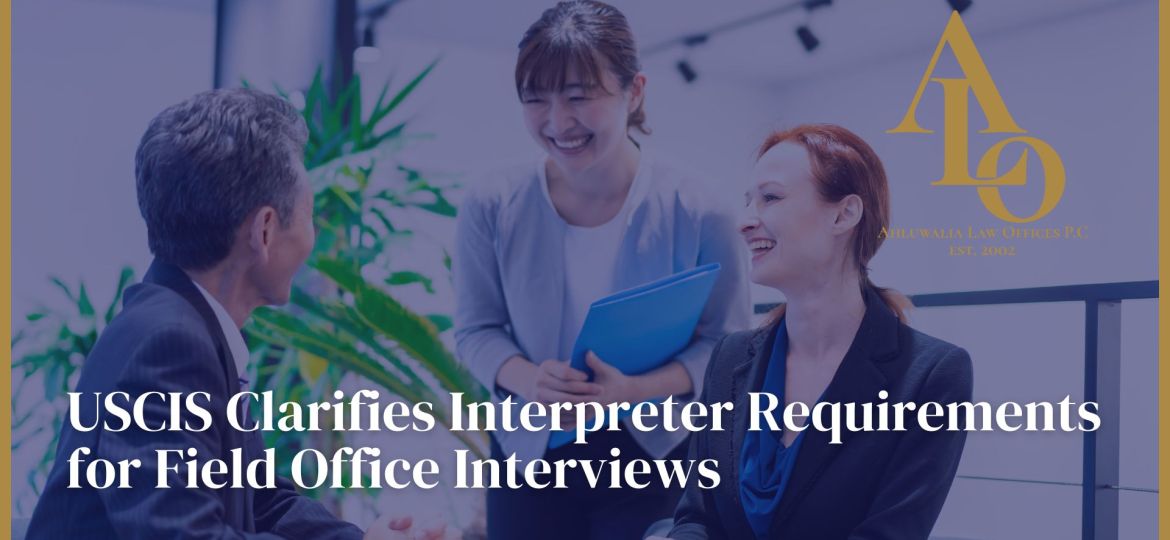
U.S. Citizenship and Immigration Services (USCIS) has reaffirmed its long-standing policy regarding the use of interpreters during interviews at domestic field offices. Beginning September 28, 2025, applicants attending USCIS appointments must bring their own qualified interpreters, if needed, or reschedule their appointments.
While this announcement—first shared on USCIS’s official Facebook page—appeared to signal a policy shift, no formal change has been issued through the USCIS Policy Manual or Field Operations Directorate. The previous allowance of phone interpreters during the COVID-19 pandemic has since ended, and USCIS has resumed in-person interpretation procedures.
Key Interpreter Requirements
USCIS emphasizes that the interpreter must:
- Translate accurately and literally, without adding personal opinions or commentary.
- Complete an Interpreter’s Oath and Privacy Release Statement before the interview.
- Provide a valid government-issued ID at the time of the interview.
- Be a disinterested party—friends, relatives, or attorneys generally may not serve as interpreters.
Importantly, attorneys who represent applicants may not interpret during interviews, and no exceptions can be made by USCIS officers.
Form G-1256: Declaration for Interpreted USCIS Interview
All interpreters must complete Form G-1256, which outlines their obligations to provide accurate interpretation and maintain confidentiality. Both the applicant and interpreter must sign the form before the interview begins. The interviewing officer will also administer an oath to both parties and complete their section of the form.
If an interpreter is disqualified for any reason—such as bias, lack of accuracy, or conflict of interest—the USCIS adjudicator will document the reason on the form and reschedule the interview.
Policy Manual Guidance
The USCIS Policy Manual continues to distinguish between interview types. For example, naturalization interviews allow USCIS to select an interpreter, while adjustment of status interviews rely on interpreters provided by the applicant. Officers fluent in the applicant’s preferred language may conduct the interview directly without interpretation.
Guidance for Applicants
Foreign nationals, green card applicants, and naturalization candidates should ensure that their interpreters meet USCIS’s professional standards and appear in person. A qualified interpreter helps maintain the integrity of the interview and avoids delays caused by disqualification or incomplete documentation.
For assistance with preparing for your USCIS interview, understanding interpreter requirements, or ensuring compliance with Form G-1256 procedures, contact Ahluwalia Law Offices, PC. Our attorneys advise clients nationwide on adjustment of status, naturalization, and other complex immigration interviews.

